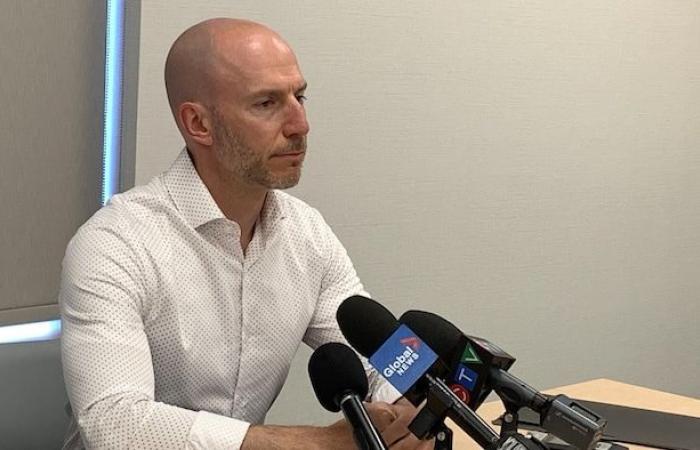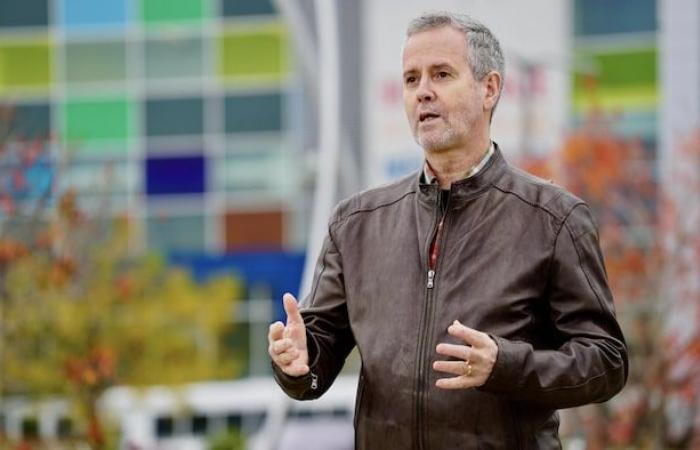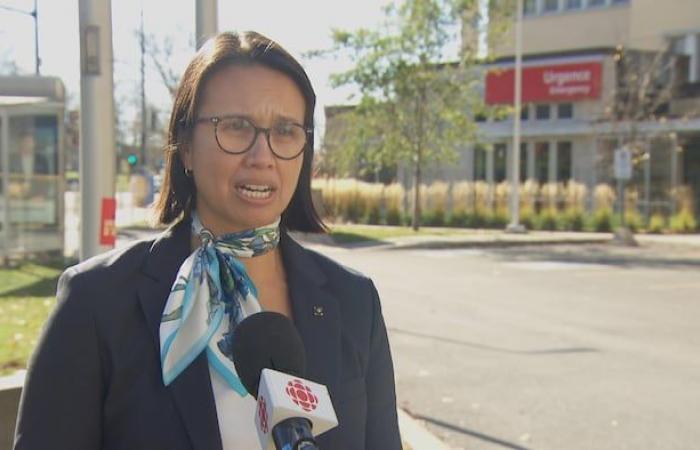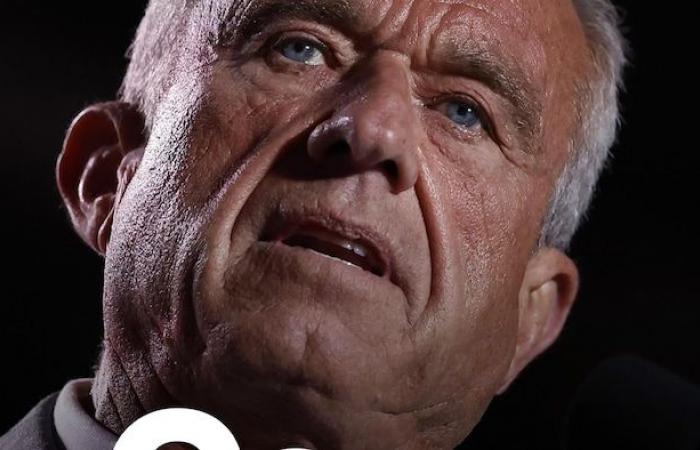Like measles outbreaks observed elsewhere in Canada and around the world, the increasing number of measles cases in New Brunswick can be explained by low vaccination rates, experts say.
New Brunswick has been dealing with a measles outbreak in the Fredericton region and in the west of the province since October 24.
As of November 15, 43 cases had been identified, indicated New Brunswick’s interim chief medical officer of health, Dr. Yves Léger, during an interview with the show The Acadie newscast.
Open in full screen mode
Dr. Yves Léger, Acting Chief Medical Officer of Health for New Brunswick. (Archive photo)
Photo: - / Pascal Raiche-Nogue
According to public health, the first confirmed case in the province is that of a traveler who contracted the disease after staying abroad.
All New Brunswickers are advised to ensure they are up to date with all their vaccinations and protected against measles
declared Dr. Léger on - on Friday, a message that health authorities have continued to repeat since the first case was reported.
We should not be surprised to see these outbreaks in the province, according to the doctor and researcher Brian Wardprofessor in the division of infectious diseases in the department of medicine of the University McGill.
Measles outbreaks in Canada should not be a surprise to anyone since vaccination coverage has fallen well below the rates needed to prevent transmission when a case arrives elsewhere
says the specialist in this disease.
Open in full screen mode
Dr. Brian Ward, infectious disease specialist at the Research Center of the McGill University Health Center. (Archive photo)
Photo : - / Jean-Francois Michaud
In fact, according to the results of the National Adult Immunization Coverage Survey from the Public Health Agency of Canada, in 2023, 87.4% of Canadians over the age of 18 were vaccinated against measles. In New Brunswick, this proportion was only 85.8%.
The national survey conducted among children also paints a similar picture. Since the COVID-19 pandemic, vaccination coverage has continued to decline in Alberta, Saskatchewan, New Brunswick and Yukon.
In 2019, 89.5% of two-year-old children in these provinces were immunized, compared to only 82.5% in 2023.
Vaccination coverage for measles, rubella and mumps among children aged 2 years in Alberta, Saskatchewan, New Brunswick and Yukon
| Year | Percentage of children vaccinated |
|---|---|
| 2019 | 89.5% |
| 2020 | 87.9% |
| 2021 | 84.5% |
| 2022 | 81.3% |
| 2023 | 82.5% |
According to data from the New Brunswick Department of Health, nearly 92% of students who entered school in 2022-2023 were vaccinated against measles while this proportion was 85% in 2019-2020.
Although this vaccination coverage may seem quite high, we need to do much better to prevent outbreaks.
The Dr. Ward explains, for example, that one person infected with measles can infect 16 others, making it the most infectious virus ever described by scientists. To optimally limit its spread, a vaccination coverage rate of 95% must be achieved.
If we imagine, for example, that nearly 10 out of 100 children enter school each year in New Brunswick without being vaccinated against measles, it only takes a few years before we have thousands of susceptible people, particularly in urban centers
illustrates the researcher.
A phenomenon attributable to COVID-19?
For Dr. Wardthere is no doubt that the pandemic and vaccine hesitancy have contributed to falling vaccination rates across the Americas.
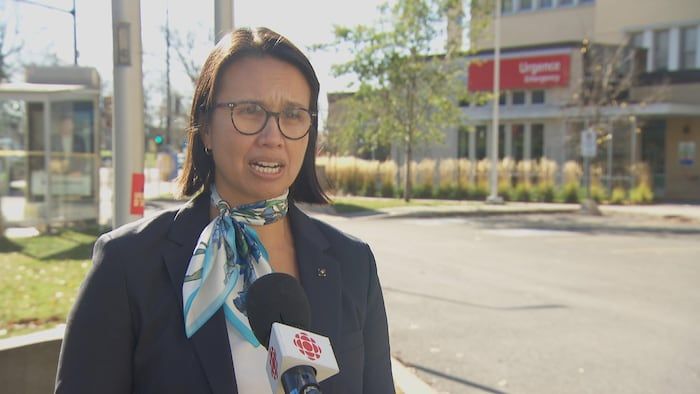
Open in full screen mode
Dr. Caroline Quach-Thanh, pediatric microbiologist-infectious disease specialist at CHU Sainte-Justine in Montreal, believes that many people have been hesitant about vaccines since the pandemic. (Archive photo)
Photo : -
Dr. Caroline Quach-Thanh, a specialist in infectious diseases in the department of microbiology and immunology at the Sainte-Justine University Hospital Center in Montreal, shares her opinion.
COVID has had an impact on parents’ confidence, with some wondering whether or not they should have their children vaccinated
she analyzes.
However, she qualifies by recalling that hesitation existed before the pandemic.
When we had our measles outbreak [au Québec] last spring, there were children who were not vaccinated, but not only since COVID. Some were maybe 10 years old and their parents decided not to vaccinate them for different reasons and they got infected
she remembers.
Serious consequences
Benoît Barbeau, professor and expert in virology at the University of Quebec in Montreal, recalls for his part that the decision not to protect oneself against these infectious diseases can have serious consequences.
[La rougeole] it is a disease that has symptoms that are far from mild. We have serious cases which mean that patients can be hospitalized and die.
he said.
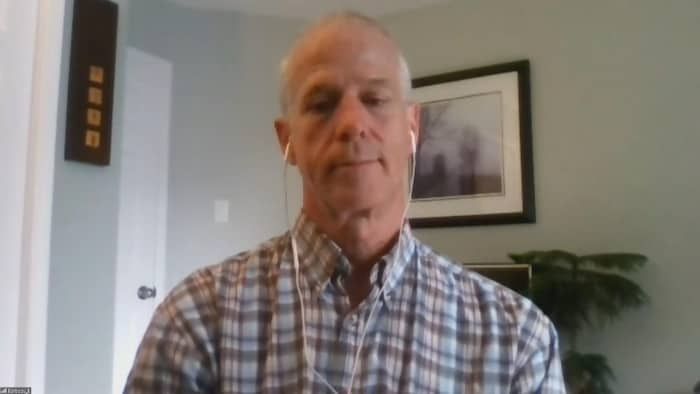
Open in full screen mode
Benoit Barbeau, an expert in virology, says that not getting vaccinated against measles can have serious health consequences. (Archive photo)
Photo : -
Although this virus can infect anyone who is not immune, Brian Ward adds that the highest mortality rates are observed in children under 12 months who have not yet been vaccinated and adults who are not protected against the disease.
In fact, the disease gets worse as you get older. Certainly, for an older person who has never been immunized and who has avoided exposure to the virus during their life, measles is deadly.
he explains.
According to the federal government, Measles elimination status was achieved in Canada in 1998, a year after the last endemic case reported in 1997.
However, when an infection arrives from abroad, all vulnerable people who have not been protected, either because they are too young or because their parents have chosen not to vaccinate them, suddenly find themselves at risk, said Dr. Quach-Thanh.
The consequences can be serious. In May, an Ontario child under the age of five who had not been vaccinated against measles died, a first in this province since 1989.
This case distresses Benoît Barbeau, who fears that we could see other tragedies of this kind, which are nevertheless preventable thanks to vaccination.
What is most shocking is that this child, to my knowledge, was not vaccinated
he said. It is a disease for which we have an extremely effective vaccine, which has proven itself and which has ensured that for years, we have had very few cases of measles.
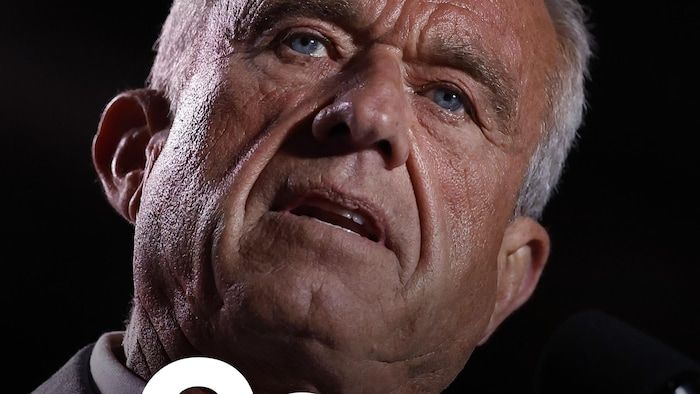
Open in full screen mode
Specialists fear that the anti-vaccine speech of Robert F. Kennedy Jr., designated head of the US Department of Health, could worsen vaccine hesitancy. (Archive photo)
Photo : Getty Images / Chip Somodevilla
This is why health authorities will have to be proactive in order to reiterate the importance of immunization programs, in particular with clear communication campaigns in terms of risks, adds the professor.
For Dr. Brian Wardthis will be all the more important with the new administration of Donald Trumpwhich risks adopting anti-vaccine rhetoric. This could reinforce hesitancy towards immunization on this side of the border.
America’s remarkably poor decision to nominate Robert F. Kennedy [réputé pour son discours anti-vaccin] to run the U.S. Department of Health and Human Services will only make things worse
he fears.

